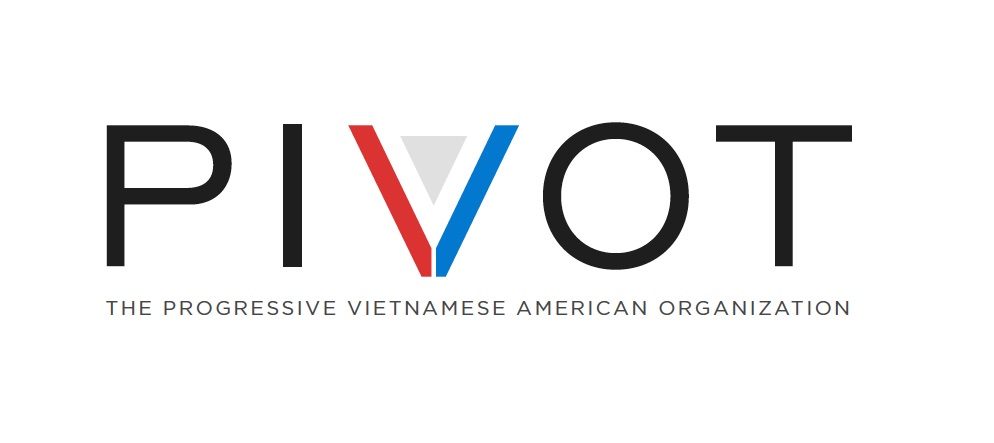Memories and Stories
/June 20, 2019
Tung Nguyen, PIVOT President
My mother died recently. One of her illnesses robbed her of the ability to remember around the time I was old enough to want to know about her life before I was born. Even before that, her stories were just a way to teach me a lesson. They always ended with “that’s why you shouldn’t…”
During one of my mother’s lucid moments, I asked about how she felt when, at the age of 14, she rowed a boat on the river to go sell vegetables at the market in Hà Tỉnh. She said she was scared. And there was a certain man who worked on the dock that she tried to avoid being alone with at night.
Most Vietnamese Americans live with the memories of war and being a refugee. In 1975, I was old enough to have such memories. For years afterward, at dining tables, I heard the war and refugee stories. They were the stories told by people who were thankful that they made it through, so of course they all ended well.
But I was thrilled not by the ending, but by the action in the middle, the harrowing escapes. That was when I first realized that stories were not the same as memories. Memories do not come arranged in chronological and pre-destined order, a cooked dinner with life lessons as desserts. Memories are raw, chaotic, an image here, a sound there, a smell that never goes away, a feeling in one’s stomach.
In America, for years, I would crawl under the blanket when a helicopter flew overhead. The sound of a bulldozer’s treads reminded me of the Russian tanks rolling into Ban Mê Thuột. The ups and downs of boat rides reminded me of the trip from Nha Trang to Vũng Tàu.
Because I loved the refugees’ memories but unsure about their stories, I wanted to learn more about the war as a young adult. I read what I could find in the 1980s and watched Stanley Karnow’s PBS series. They all tried to explain why war happened, what war was like, and always, whose fault it was. The blame game made me distrust the truth behind the stories. But there was one thing I thought they were all right about. The stories made me felt like I was rolling around in broken glass after the skin was stripped from my body. That, I believed, was the true memory of the Vietnam War, as experienced by the millions who died, and by the millions who loved them.
Like many Vietnamese Americans, I stopped listening to the stories because what I learned was not worth the anguish. Many of us only tell the stories, or the version of the stories, that do not bring sorrow. Or we try to make it worthwhile by attaching a lesson to it. And for those who suffered the most, the South Vietnamese veterans, the concentration camp survivors, the refugees who were arrested or saw death on the journey, what was the lesson that made it worthwhile? Often, it was that we must fight Communism.
Why did we need lessons to make the memories worthwhile? I think because we were afraid that we betray the lost if we did not tell the stories as a blueprint for revenge. As if the memories were not enough. Because we know that we too will be gone someday, and who then will remember the dead and fight for them?
But when the stories are not true to the memories, or when we do not even speak about them at all, we have chosen to have an illness that takes away our memories, like my mother’s disease. As a doctor, I have seen the cost of this illness. Fathers become distant or abusive. Mothers become overly protective. Children grow up hating their parents.
I would like to think that we stay faithful to the lost by passing on our memories. Not the lessons. I am tired of my father’s lessons, but am never bored by his remembrances. Across the dining table, I ask him to tell me more. How an experience must have been so scary, or exciting, or sad. I ask to record his stories. Partly for his voice. Partly in case I don’t understand certain Vietnamese words or phrases, to translate later.
And the children? Take the memories, yours and your parents’, and make stories. You don’t have to be a writer. You don’t even have to share the stories with anyone else, although it would be nice if you did to pass the memories on. Some of the children have done so, and their works are now published in English, as memoirs or as fiction. I read them when I have the strength to cope with the emotions. It does not matter whether the stories are true, or resemble my own experience. I read them for the memories they bring.
If I could, I would sit at the dining table with my mother. And ask what she felt when she took my brother, age 4, and me, age 10, on that trip out of Ban Mê Thuột. Up and down the blown up bridges. Packed into the boat. Seeing my father in Sài Gòn. And then, two weeks later, running around looking for a way out and losing my father along the way. What did she feel, at 37 years old, the day she pushed both her sons onto a barge and then jumped, leaving the dock and everyone else behind?
